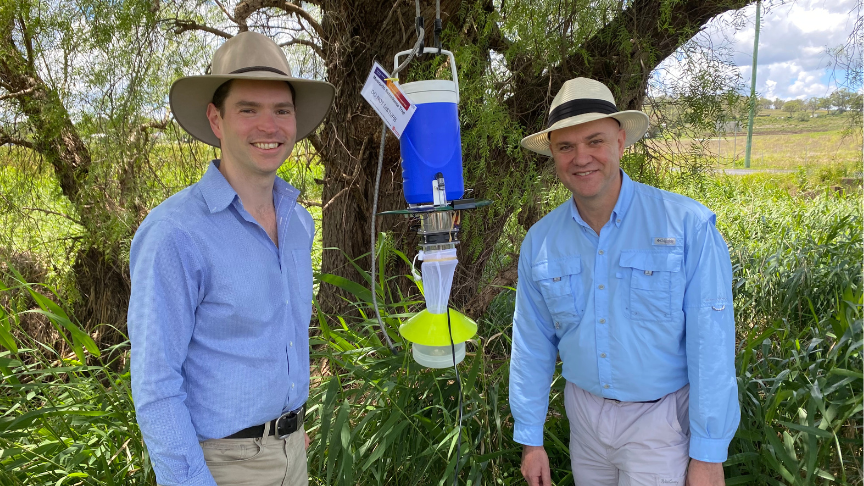
Download high resolution image [JPEG 6MB]
Queensland’s Chief Health Officer is encouraging locals to be aware of a mosquito-borne virus, especially anyone who works near piggeries, creeks or dams.
Japanese encephalitis virus (JEV) is transmitted to humans through the bite of a mosquito that has bitten an infectious animal, usually pigs or water birds.
Dr John Gerrard said the best protection against JEV is to avoid mosquito bites.
“Personal protection includes wearing light-coloured, loose-fitting clothing with long sleeves and long trousers, as well as using an effective insect repellent on any exposed skin,” Dr Gerrard said.
“Using insecticide sprays or vapour dispensing units indoors or mosquito coils outdoors is another effective way to repel mosquitoes.”
The free JEV vaccination is recommended for at-risk groups which include people who work at or live near a piggery, or those who work with mosquitoes including environmental health officers and entomologists.
The free JEV vaccination is encouraged for residents who spend several hours a day outdoors, particularly around dusk or dawn, in the local government areas of:
- Balonne
- Goondiwindi
- North Burnett
- South Burnett
- Quilpie
- Western Downs
People living in or around Millmerran are also encouraged to get the free JEV jab.
Darling Downs Health Director of Public Health and Community Medicine Dr Liam Flynn said those local government areas are where JEV has been found in either mosquitoes, pigs or people.
“Over recent months, the Darling Downs Public Health team has been out and about across the region trapping for mosquitoes which are then taken to a lab for testing,” Dr Flynn said.
“This is to help us gain more information about different types of mosquitoes and what diseases those mosquitoes might be carrying.”
“If you happen to be out and about in Southern Queensland and see these mosquito traps, please don’t touch them, but know that they’re there so we can understand the burden of diseases.”
“This surveillance program can ensure we have the best information to act on.”
Around 99 per cent of people infected with JEV have no symptoms or mild symptoms. Those who do develop symptoms may experience a fever and headache, or abdominal pain and vomiting in children.
After a person is bitten by an infected mosquito, it usually takes five to 15 days for the first symptoms to appear.
JEV does not spread directly between people and there is no risk of JEV from consuming pork or pork products.
For more information on JEV visit: Japanese Encephalitis (health.qld.gov.au)